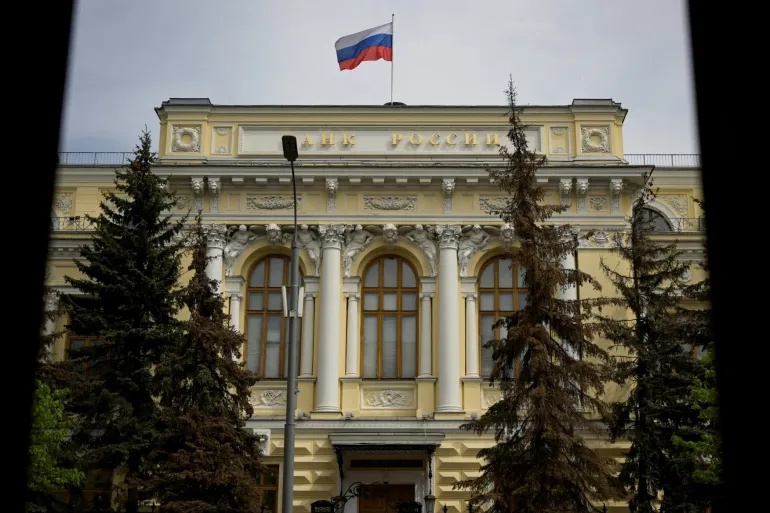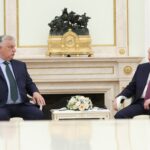Russia’s Central Bank held its key interest rate at 21% on Friday, maintaining unprecedented borrowing costs as the country struggles with soaring inflation.
Prices have been rising rapidly across the Russian economy for months, driven by surging military spending and severe labor shortages.
Annual inflation exceeded 10% last month for the first time in two years, with price increases expected to average between 7% and 8% this year.
“Current inflationary pressures have eased but remain high,” the Central Bank said in a statement announcing its decision to leave rates unchanged.
The regulator added that achieving its inflation target of 4% would “require a prolonged period of maintaining tight monetary conditions in the economy.”
In a press conference after the rate decision, Central Bank Governor Elvira Nabiullina said that future rate hikes were possible.
“If the pro-inflationary risks that we are noticing materialize, we may need to raise the rate,” she told reporters. “Our current view is that monetary conditions are sufficiently tight, but if it is necessary, we are ready to raise the rate.”
Policymakers raised the key rate to 21% in October, despite concerns from businesses and banks that high borrowing costs were hurting economic growth.
In January, Moscow-based economic research group CMASF warned of a “large-scale spike in corporate bankruptcies” amid high interest rates.
According to Russian President Vladimir Putin, Russia is spending almost 9% of its GDP on defense and security, with military spending set to increase by nearly 30% again in 2025.
That spending has led to economic growth, partially offsetting the impact of Western sanctions.
However, since much of the spending is directed by the state, which is less responsive to higher borrowing costs, analysts argue that interest rate hikes may not be an effective tool to curb inflation.












